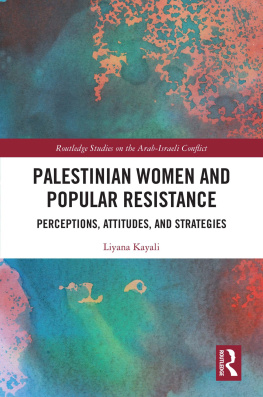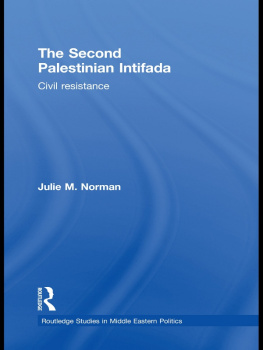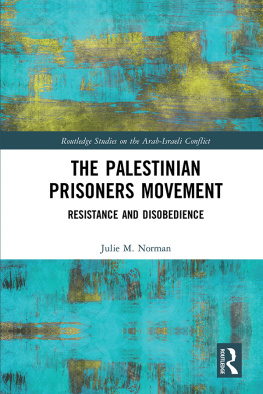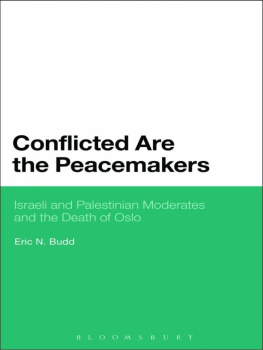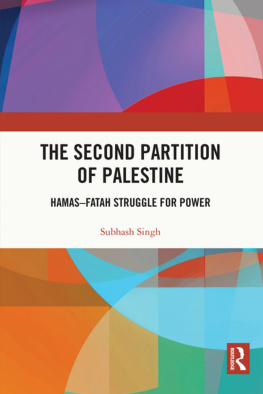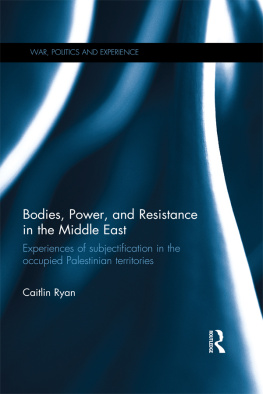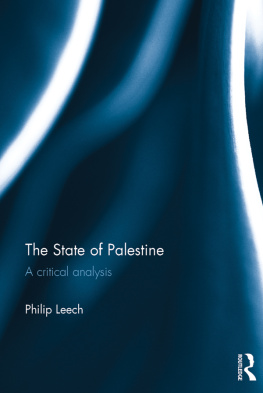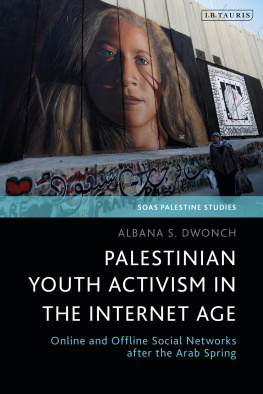Palestinian Women and Popular Resistance
This book explores Palestinian womens views of popular resistance in the West Bank and examines factors shaping the nature and extent of their involvement. Despite the signing of the Oslo peace accords in 1993, the Occupied Palestinian Territories in the contemporary period have experienced tightened Israeli occupational control and worsening political, humanitarian, security, and economic conditions.
Based on ethnographic fieldwork conducted with women in the West Bank, this book looks at how Palestinian women in the post-Oslo period perceive, negotiate, and enact resistance. It demonstrates that, far from being apathetic, as some observers have charged, Palestinian women remain deeply committed to the goals of national liberation and wish to contribute to an effective popular resistance movement. Yet many Palestinian women feel alienated from prevailing forms of collective popular resistance in the OPT due to the low levels of legitimacy they accord them. This alienation has been made stark by the gendered and intersecting impacts of expanding settler-colonialism, tightening spatial control, a professionalised and depoliticised civil society, reinforced patriarchal constraints, Israeli and Palestinian Authority (PA) repression and violence, and a deteriorating economy all of which have raised the barriers Palestinian women face to active participation.
Undertaking a gendered analysis of conflict and resistance, this volume highlights significant changes over the course of a long-running resistance movement. Readers interested in gender and womens studies, the Arab-Israel conflict and Middle East politics will find the study beneficial.
Liyana Kayali is a lecturer at the Centre for Arab and Islamic Studies at the Australian National University (ANU). Prior to this, Liyana was a research fellow at the University of Sussex, where she was part of a project examining the use of restorative justice approaches to respond to hate crime and hate incidents. She has also held a research associate role at the Centre for Gender Studies within the School of Oriental and African Studies (SOAS), University of London.
Routledge Studies on the Arab-Israeli Conflict
Series Editor: Mick Dumper, University of Exeter
The Arab-Israeli conflict continues to be the centre of academic and popular attention. This series brings together the best of the cutting edge work now being undertaken by predominantly new and young scholars. Although largely falling within the field of political science the series also includes interdisciplinary and multidisciplinary contributions.
23 Islamic Development in Palestine
A Comparative Study
Stephen Royle
24 The History and Politics of the Bedouin
Reimagining Nomadism in Modern Palestine
Seraj Assi
25 Palestinian Popular Struggle
Unarmed and Participatory
Michael J. Carpenter
26 Isreal in the Post Oslo Era
Prospects for Conflict and Reconciliation with the Palestinians
Asad Ghanem, Mohanad Mostafa, Salim Brake
27 The Russians in Israel
A New Ethnic Group in a Tribal Society
Majid Ibrahim Al-Haj
28 Palestinian Women and Popular Resistance
Perceptions, Attitudes, and Strategies
Liyana Kayali
For more information about this series, please visit: https://www.routledge.com/middleeaststudies/series/SEAIC
First published 2021
by Routledge
2 Park Square, Milton Park, Abingdon, Oxon OX14 4RN
and by Routledge
52 Vanderbilt Avenue, New York, NY 10017
Routledge is an imprint of the Taylor & Francis Group, an informa business
The right of Liyana Kayali to be identified as author of this work has been asserted by her in accordance with sections 77 and 78 of the Copyright, Designs and Patents Act 1988.
All rights reserved. No part of this book may be reprinted or reproduced or utilised in any form or by any electronic, mechanical, or other means, now known or hereafter invented, including photocopying and recording, or in any information storage or retrieval system, without permission in writing from the publishers.
Trademark notice: Product or corporate names may be trademarks or registered trademarks, and are used only for identification and explanation without intent to infringe.
British Library Cataloguing-in-Publication Data
A catalogue record for this book is available from the British Library
Library of Congress Cataloging-in-Publication Data
Names: Kayali, Liyana, 1986 author.
Title: Palestinian women and popular resistance : perceptions, attitudes and strategies / Liyana Kayali.
Other titles: Routledge studies on the Arab-Israeli conflict; 28.
Description: Abingdon, Oxon; New York, NY : Routledge, 2020. |
Series: Routledge studies on the Arab-Israeli conflict; 28 |
Includes bibliographical references and index.
Identifiers: LCCN 2020024193 (print) | LCCN 2020024194 (ebook) | ISBN 9780367444358 (hardback) | ISBN 9781000215892 (epub) |
ISBN 9781000215694 (adobe pdf) | ISBN 9781000215793 (mobi) |
ISBN 9781003009696 (ebook)
Subjects: LCSH: Women, Palestinian ArabPolitical activityWest BankAttitudes. | Government, Resistance toWest BankAttitudes. | NonviolenceWest BankAttitudes. | Women, Palestinian ArabWest BankSocial conditions.
Classification: LCC HQ1728.7.K39 2020 (print) |
LCC HQ1728.7 (ebook) | DDC 322.4082/0956942dc23
LC record available at https://lccn.loc.gov/2020024193
LC ebook record available at https://lccn.loc.gov/2020024194
ISBN: 978-0-367-44435-8 (hbk)
ISBN: 978-1-003-00969-6 (ebk)
Typeset in Times New Roman
by codeMantra
I am indebted to a number of people who supported and assisted me in completing this book. I would first like to express my gratitude to Dr Victoria Mason, who provided invaluable guidance, insight, inspiration, and support at every step of the project. Her expertise significantly shaped the direction of my research and her encouragement made the manuscript possible. Thanks must also go to Professor Bina DCosta, who generously gave of her time and expansive knowledge in contributing valuable comments and advice. In addition, I am grateful to Dr Sophie Richter-Devroe, who provided thoughtful feedback on work from an early iteration of this study. Acknowledgement is also due to Professor Ahmad Shboul, who encouraged me to pursue research in the area and whose eminent work and teaching were so formative to my intellectual development.
This book was greatly improved by the comments provided by the anonymous reviewers of my doctoral thesis (out of which this book emerged), as well as those of the reviewers commissioned by Routledge. I also thank Mr Joe Whiting and his assistant at Routledge, Ms Ella Panczel, for their help throughout the publishing process.
I am deeply thankful to the many Palestinians who assisted me during fieldwork. I regret that they must remain anonymous, but I will never forget the kindness of those who agreed to participate in the research, who became my friends, and who let me into their homes and treated me like a member of the family. I was also fortunate to be able to spend time with my aunt, Sana Saqf Alhait, in between the periods spent in the West Bank. I am sincerely grateful for her warm hospitality.

